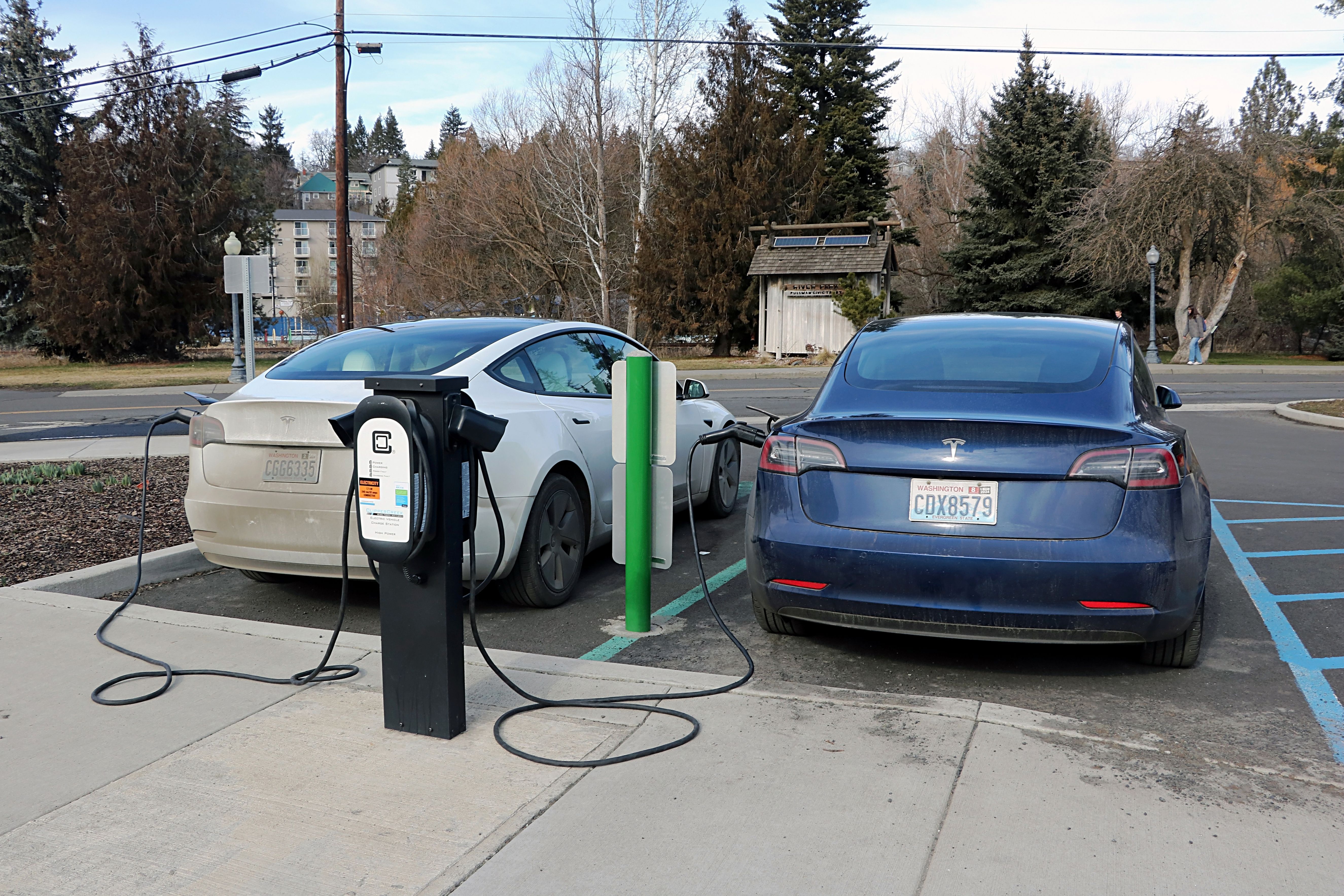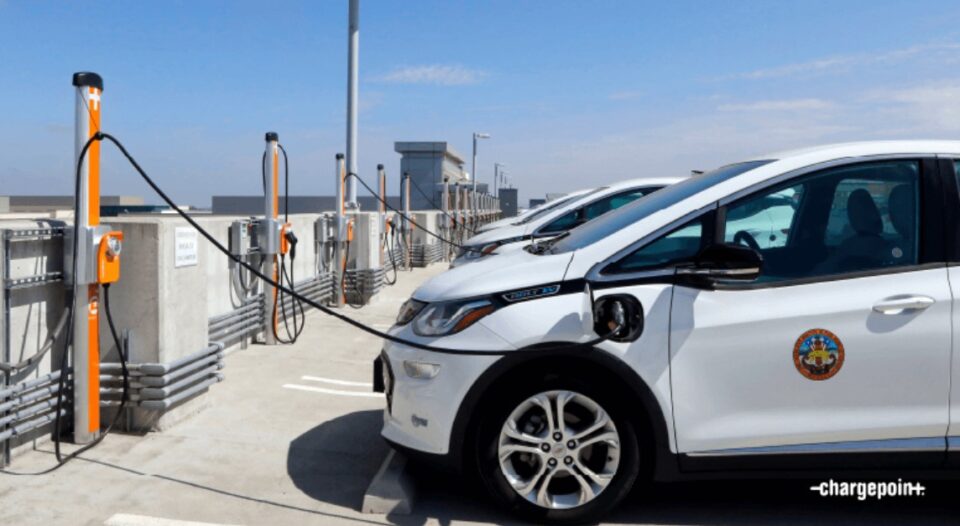What’s Driving the Growth of EV Infrastructure? Buy EV Charging news for Key Updates
What’s Driving the Growth of EV Infrastructure? Buy EV Charging news for Key Updates
Blog Article
Top EV Charging News: Trick Updates on Infrastructure and Technology

Current Improvements in Fast-Charging Technology

In addition, developments in battery modern technology, including boosted thermal management systems and greater energy density batteries, enhance fast-charging capacities. These developments mitigate the danger of battery degradation throughout fast charging, making certain longevity and performance for EV owners.
Furthermore, the integration of smart charging options is improving individual experience, making it possible for real-time surveillance and vibrant prices models. EV Charging news. This adaptability permits vehicle drivers to enhance charging expenses and times based upon grid need
As automakers continue to invest in fast-charging networks, the cooperation in between market stakeholders is crucial. Collaborations between charging station companies and vehicle producers are leading the way for considerable insurance coverage, ultimately fostering an extra robust EV environment. These improvements are essential in sustaining the shift to lasting transport.
Government Initiatives for Billing Development
Federal government efforts play an essential duty in the growth of electrical automobile (EV) billing facilities, promoting the shift to lasting transportation. Numerous government and state programs are being executed to improve billing access, reduce the economic problem on consumers, and promote the adoption of electrical vehicles.
Significantly, the U.S. government has designated significant financing via the Infrastructure Financial Investment and Jobs Act, which allocates $7.5 billion for EV billing network growth throughout the nation. This funding is focused on releasing countless brand-new billing stations, particularly in underserved locations, therefore resolving variety anxiousness amongst potential EV buyers.
In addition, many states are enacting regulation to simplify the permitting procedure for charging terminal installations, which is vital for accelerating release. Rewards such as tax obligation credit ratings and discounts for both customers and services are also being introduced to motivate the installment of billing infrastructure.
Moreover, public-private partnerships are significantly coming to be a focus, leveraging exclusive financial investment to match government funding. These initiatives highlight a collective method important for developing a reliable and extensive EV charging network, eventually adding to a greener and more sustainable future.
Cutting-edge Battery Solutions Enhancing Efficiency
Reinventing the landscape of electric lorry (EV) technology, cutting-edge battery options are significantly improving efficiency and efficiency. Developments in battery chemistry, specifically with lithium-sulfur and solid-state batteries, are leading to raised energy density, which permits for longer varieties and faster charging times. These new battery types have the potential to outmatch conventional lithium-ion batteries by using higher abilities while decreasing weight, consequently enhancing overall vehicle performance.
In addition, growths in battery management systems (BMS) are maximizing power usage and expanding battery life expectancy. Intelligent formulas keep an eye on battery health and wellness and efficiency, making it possible for real-time modifications to billing and releasing processes. This not just improves the performance of the battery however also makes certain an extra sustainable and reputable energy resource for EVs.
Furthermore, the assimilation of reusing modern technologies is attending to the environmental effect of battery manufacturing and disposal. Advancements in second-life applications for EV batteries are facilitating their use in power storage systems, contributing to a round economic situation.
As these innovative battery remedies remain to progress, they promise to change the EV market, making electrical cars article source more accessible and appealing to a broader target market while supporting global sustainability objectives.

Cooperation In Between Automakers and Billing Networks
Recognizing the important demand for a durable charging infrastructure, automakers are progressively working together with billing network providers to enhance the EV ownership experience (EV Charging news). These partnerships aim to produce a seamless charging community that benefits consumers and supports the transition to electric vehicles
Major automotive brand names are signing up with pressures with well established billing networks to broaden their billing station protection, making certain chauffeurs have access to trusted and hassle-free billing alternatives. Partnerships with networks like ChargePoint and Electrify America allow automakers to incorporate charging solutions straight into their vehicles' navigating systems, assisting users to the nearest terminals and offering real-time availability updates.
Furthermore, these cooperations typically result in the growth of fast-charging modern technologies that dramatically decrease the moment needed to reenergize an EV. By pooling sources and proficiency, car manufacturers and charging networks can introduce quicker, creating options that meet the expanding need for electric flexibility.
In enhancement, joint campaigns might likewise bring about more standard billing procedures, which can relieve consumer complication and advertise wider EV fostering. Overall, these calculated partnerships are critical in developing a easy to use and reliable charging infrastructure that satisfies the demands of an expanding electrical lorry market.
Obstacles Facing EV Charging Facilities
As the electrical vehicle market remains to grow, numerous obstacles are appearing that hinder the advancement of an extensive billing framework. Among the key obstacles is the inadequate number of billing terminals, particularly in rural and underserved metropolitan locations. This void creates range stress and anxiety amongst possible EV customers, discouraging them from making the switch.
Additionally, the absence of standardization in billing innovation makes complex the framework landscape. Variants in see page plug types and charging rates can produce confusion for customers and boost operational intricacies for charging network operators.
An additional pushing issue is the high cost linked with the setup and maintenance of billing terminals, which can be a barrier for both exclusive organizations and public entities. Ultimately, regulative hurdles and zoning restrictions can postpone the implementation of charging facilities, hindering progression in broadening vital solutions. Attending to these my latest blog post obstacles will be crucial for cultivating a robust EV environment that sustains the change to sustainable transport.
Verdict
To conclude, the recurring advancements in EV charging innovation, sustained by substantial government initiatives and ingenious battery options, are crucial for the expansion and efficiency of electric vehicle infrastructure. Partnerships in between car manufacturers and billing service providers even more improve station protection, attending to the expanding need for available billing options. Regardless of obstacles that persist within the EV charging landscape, these growths represent a positive trajectory in the direction of an extra reliable and lasting electrical automobile ecological community.
Innovations in billing framework have actually led to the advancement of ultra-fast chargers capable of delivering up to 350 kW of power, considerably decreasing charging times. Variants in plug kinds and charging speeds can develop complication for individuals and boost operational complexities for billing network drivers.In final thought, the ongoing advancements in EV billing innovation, sustained by substantial government initiatives and cutting-edge battery options, are vital for the growth and efficiency of electrical car infrastructure. Cooperations in between automakers and billing carriers additionally enhance terminal protection, addressing the growing demand for obtainable charging alternatives. In spite of challenges that continue within the EV charging landscape, these advancements signify a positive trajectory towards an extra sustainable and reliable electric automobile community.
Report this page